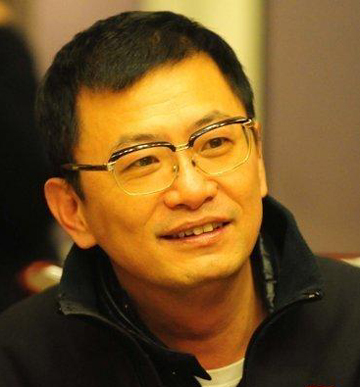Wong Kar-wai's lost kung fu world
- By Zhang Rui
 0 Comment(s)
0 Comment(s) Print
Print E-mail China.org.cn, January 12, 2013
E-mail China.org.cn, January 12, 2013
Wong Kar-wai's "The Grandmaster" is not just about Ip Man, instead it's about a lost kung fu world where martial artists live and endure.
|
|
|
Wong Kar-wai [File photo] |
Ip Man, as portrayed by Tony Leung, is the major character as well as the film's voice over narrator. The legendary Ip Man popularized Wing Chun-style boxing in Hong Kong, and his student Bruce Lee popularized kung fu and kung fu films around the world.
"The Grandmaster" opens with a cool fighting scene in the rain, which perhaps draws inspiration from "The Matrix" by Larry and Andy Wachowski. Not surprisingly, the two films share the same martial arts choreographer, Yuen Woo-ping. But "The Grandmaster" has more poetry in motion, not only in its opening scene but throughout the entire movie.
Likewise, "Grandmaster" features more than just well-choreographed action. Wong first came up with the idea for the film back in 1997, registered the initial script in 2001, and started to shoot it in 2009. Through years of hard work, Wong himself collected tons of Kung fu materials and documents, traveled around China and visited hundreds existing Kung Fu masters. He sent his main actors, Tony Leung, Zhang Ziyi and Chang Chen to learn real kung fu for more than 3 years. As a result, Chang even won a national kung fu championship in addition to his acting.
You can say Wong has created a sort of "ode to kung fu" — as the aesthetic, lavish and breathtaking cinematography almost seems like a sensory overload. Wong even borrows a piece of the score from "Once Upon a Time in America," indicating his ambition to create an oriental version of a Kung Fu world which existed before the People's Republic of China was founded.
"The Grandmaster" chronicles Ip Man's last days in his hometown of Foshan in the 1930s, a town which now is a part of Guangzhou, before he moved to Hong Kong. Wong also touches on his suffering during the Japanese occupation, but he does not go around beating up Japanese soldiers to become a national hero, like other Ip Man films did, such as the one directed by Wilson Yip.
Wong's film also tells about the story of Gong Er, a role played by Zhang Ziyi. She is the daughter of an old-generation master of Baguazhang boxing style. She delivers the best performance of any martial arts film since "Crouching Tiger Hidden Dragon" by Ang Lee. Even Zhang herself thinks she cannot top the role in the future — she said in recent interview that she might not make another kung fu film after "Grandmaster."
Her strengths show in every scene — from when she fights Ip Man to defend her family's honor to when she takes down the traitorous Ma San (played by Zhang Jin) to revenge her father, which is the film's climax.
Gong Er's story actually takes up more space in the movie than Ip Man's. If you were to say "The Grandmaster" is a biopic of Gong, it would also make sense. To become a real grandmaster, Gong says in the film, you have to know yourself, see the world and enlighten the people. Gong chooses to ask Ip Man to step forward to fulfill her unfinished journey.
The two masters' stories are intertwined in the film. And the love between Gong and Ip portrayed in the film is very much Wong Kar-wai-styled. They appreciate each other, but keep their love inside (Ip Man has a wife to care for; Gong has to enact her revenge to save her family's honor). The mood and emotion follow Wong's previous classics such as "Ashes of Time," "2046" and "In the Mood for Love." Several lines in the movie will become instant classics, such as "Every time a person meets someone in the world, it's a meeting after a long goodbye."
The storyline may look slow, jumbled and loose, and small roles such as Chang Chen's may seem irrelevant and wasted, but the disadvantages might also be seen as advantages for Wong's film. "The Grandmaster" is not a big leap or a breakthrough for Wong's film franchise, but it will be remembered for its visual splendor, stunning kung fu action, philosophy of love and life, the spiritual world of kung fu masters, as well as Wong Kar-wai's vision of his 'lost kung fu world.'







Go to Forum >>0 Comment(s)